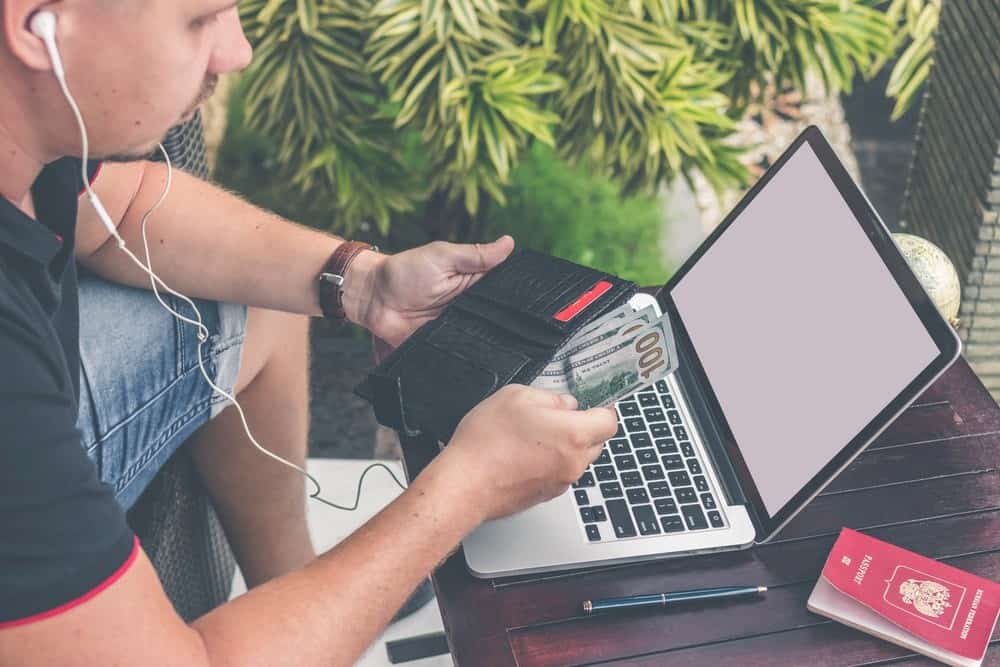All OFWs have the obligation to provide for their family. Money remittance is the most obvious choice when it comes to sending financials back at home. You may ask, “Is it all because of convenience? Is that the only reason why both the senders and receivers prefer money remittance over other forms of financial transfers?” Well, the definite answer would be negative, as safety and quick results would always come in play. With all of that being said, safety measures should still be practiced by both sides, especially now that countless scams are rampant. Here are a few important tips for both the senders and receivers regarding safe money transfers:
1) Verify the money transfer service that you will be transacting with.
If you are sending money, go for a trusted name when it comes to money transfers. Do your own homework, research on the remittance establishment before shelling out your hard-earned cash for the transfer process. There have been news of OFWs getting scammed in recent years due to them being in contact with scammers pretending to be personnel of countless remittance centers. Do not make the very same mistake. Be cautious and only transact within the confines of the establishment itself. Avoid any person claiming to be part of the remittance company if they are lacking the necessary identifications.
2) Only share the transaction details with your loved ones.
Never share any transaction information with other people, may it be your office mates or overseas friends. Things may get out of hand and the information may be leaked, leading to the perpetrators waiting on the receiving end of the remittance, rather than your family. Make sure to communicate the transaction only with your family members, a few days prior to the transaction itself, so that they may prepare for the quick travel towards their nearest remittance center. You may even text the details (instead of saying them out loud via call), so that they may only be the ones to receive such important information like control number and the remittance amount.
3) Avoid any suspicious-looking apps that may claim to handle money transfers via your smartphone.
While the advent of technology enabled a few legitimate money transfer apps to exist, that doesn’t mean that all of the money transfer apps that you see online are all legitimate. Some are just phishing apps, hoping to get your personal details, resulting to your income loss, or worse, identity theft. It is still better to transact within the confines of a well-verified money transfer establishment, just as long as you’d consider the first two pointers.
4) Be cautious of text messages coming from people who are pretending to be your so-called loved ones abroad.
Ever had the experience of receiving a text message from a person who claims to be your OFW relative abroad? Did he/she ask you to send over cash or cellphone load in order to receive that long-awaited remittance? Well, if ever you did, you are just one of the many that were a target of these ridiculous scam messages. Never give any important info, and most of all, never reply to any of these messages. If your smartphone would permit, block the number and report them to the authorities, as these crooks are always on the text prowl, looking to make an easy score from any unknowing person who isn’t familiar yet with this type of scam.
5) After receiving the remittance details from your loved one abroad, never share it to anyone.
This is similar to the second pointer, but in reverse. Keep the control number and remittance amount all to yourself. Never share any details; never tell of the upcoming money transfer even to your neighbors. Word may spread, and this may be utilized by thieves in planning to do something bad when the day of the remittance arrives. Remember, remittance info may only be received by you and you alone, so never hesitate to keep it to yourself.
6) Only transact within the confines of the remittance center.
Stay alert and be cautious of your surroundings. Never speak with anyone claiming to be employees of the remittance center. Only communicate with the remittance personnel inside the establishment itself. It’s easy to recognize which is which, identified by their uniforms and IDs. After the transaction (and as much as possible), never linger for too long. Immediately take a ride straight home, so that crooks wouldn’t have enough time to monitor or plot your every move. Remember, prevention is always better than cure.
Speaking of well-trusted remittance centers, you may be ready to send your hard-earned money to your family back at home; however, you are still undecided as to which remitting center you should transact with. Well no need to look any further. With Cebuana Lhuillier’s Pera Padala Service, you are ensured an easy, quick, and safe way to send and receive money. With close to 2,500 branches nationwide and accredited international partners, this money transfer service is made available to clients within and outside the Philippines. So for our beloved OFW patrons, feel free to visit any of our international partners – we guarantee fast, easy and secure transactions.
For a complete list of our international partners, you may visit our website at https://www.cebuanalhuillier.com/pera-padala/.
Image Source: https://unsplash.com/photos/SkA2TeXOfks

